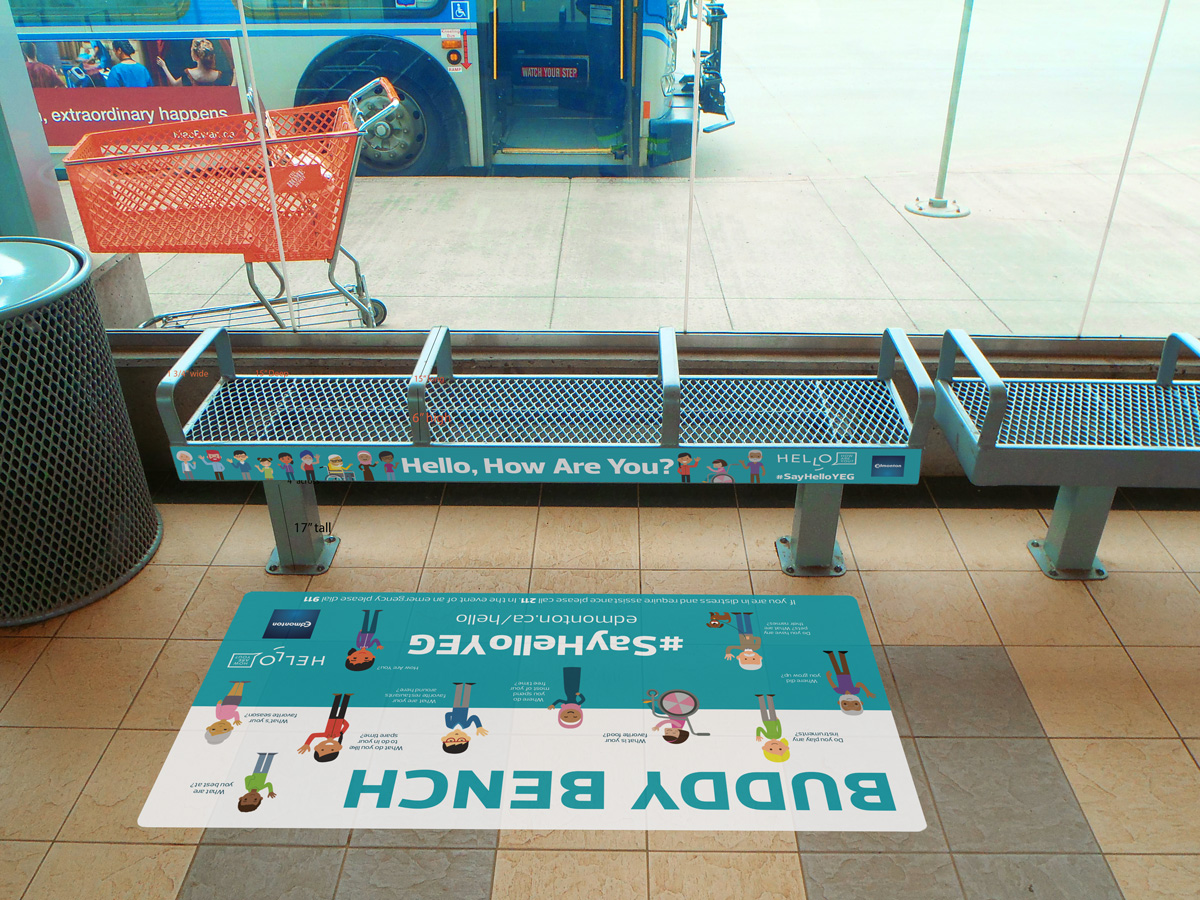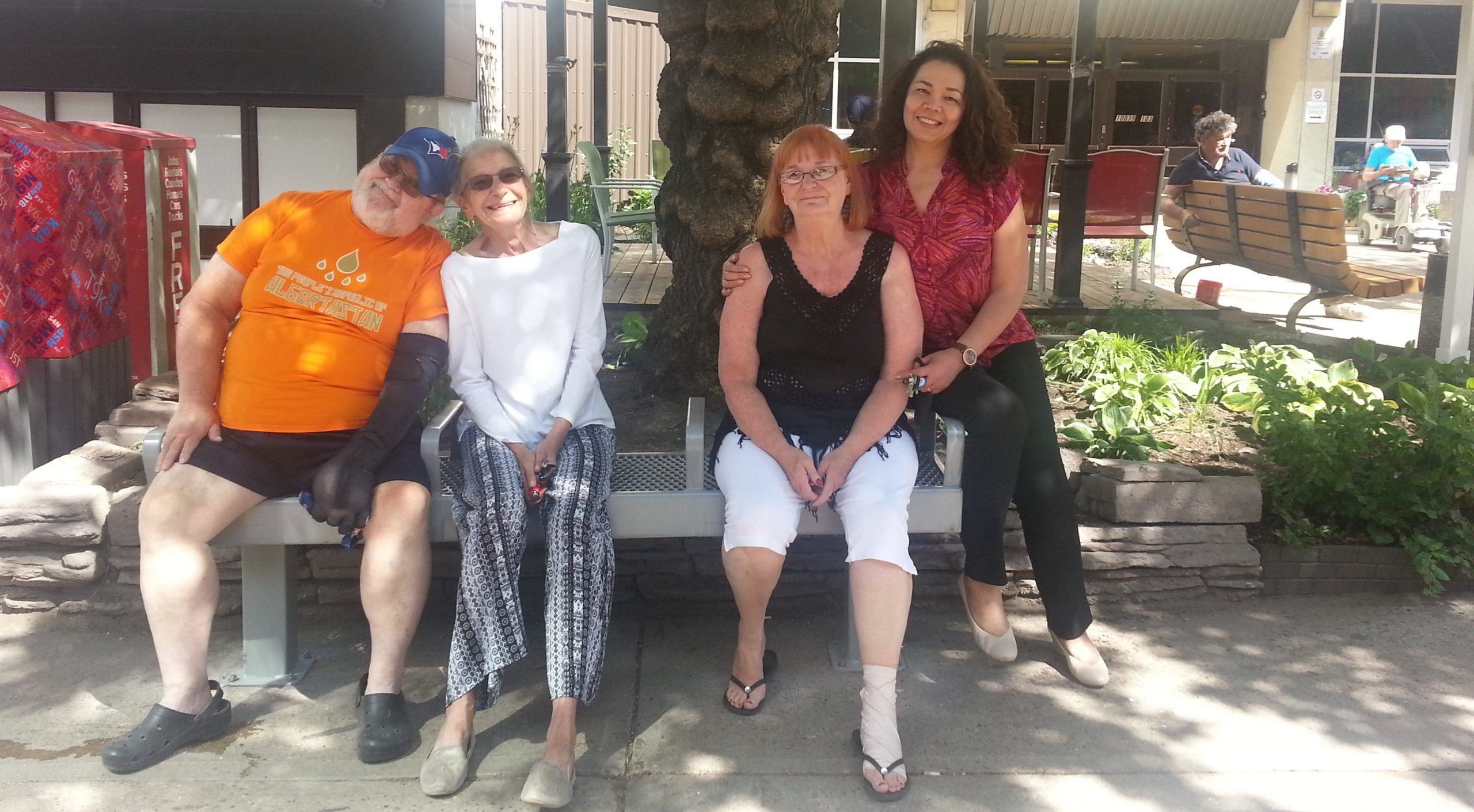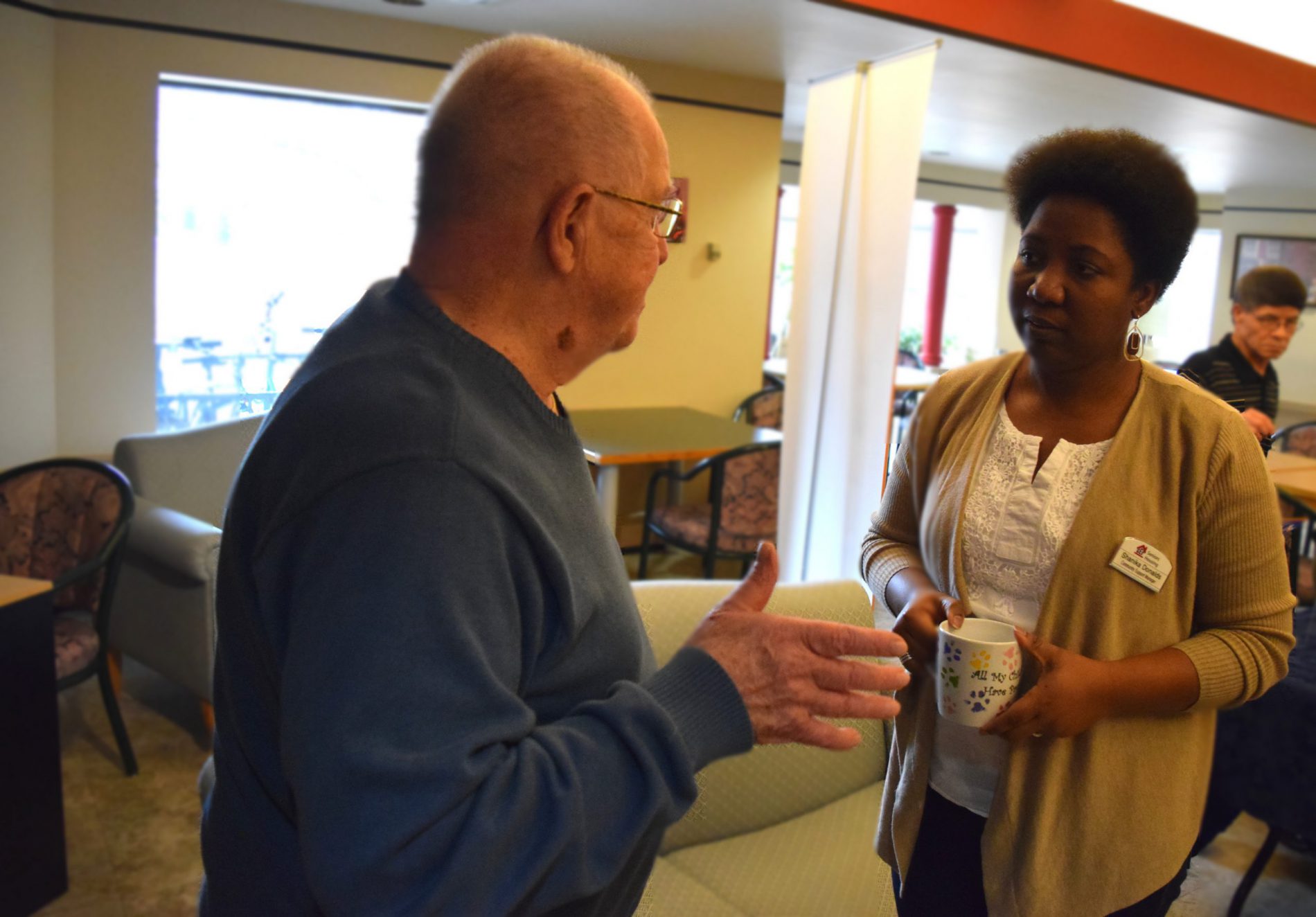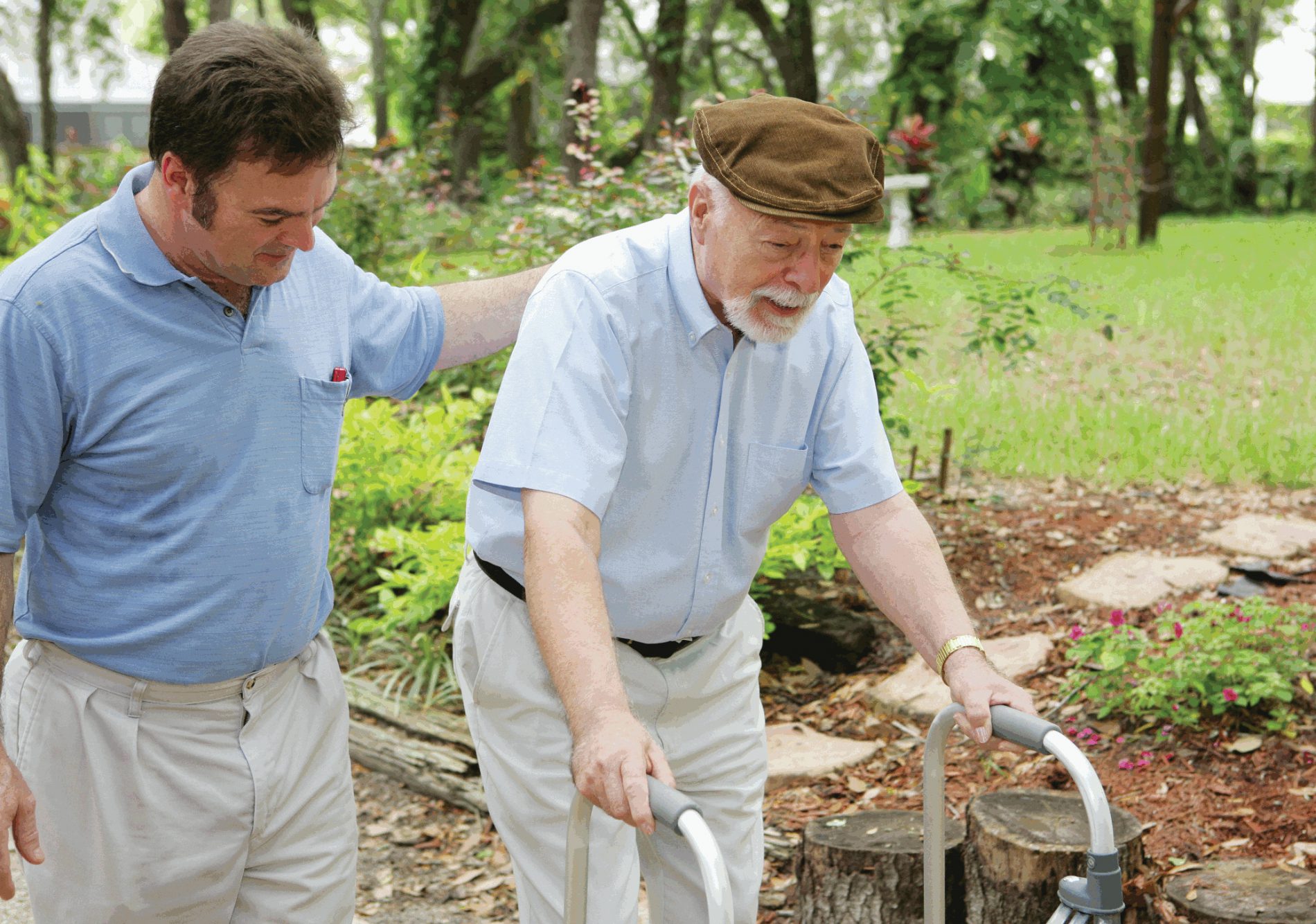Tag: community supports

A new bench was placed outside of Cathedral Close on June 29, 2017, and while this isn’t normally something to pay special attention to, this bench represents something more than simply somewhere to stop for a quick rest. As part of the City of Edmonton’s Hello, How Are You? campaign to address urban isolation and mental health, the Buddy Benches were developed by the City Lab as an open invitation to make a connection.
Edmonton Transportation Service (ETS) donated 20 brand new benches to be used as Buddy Benches all over Edmonton as a means to try and address social isolation. The idea is that people can stop and sit on the bench as a signal that they’re looking for someone to talk to. Anyone else can then join the person on the bench, ask how they are, and start a conversation. Most Buddy Benches are painted bright colours with the hashtag #SayHelloYeg to signal that this bench is meant for connections.

“When the bench was being installed, a lot of the tenants were asking what it was about, and after I explained the Buddy Bench program they loved the idea,” says Colleen Simpson, Assistant Manager with Cathedral Close. “We have a couple of our benches and a gazebo on our property, but the Buddy Bench is allowing more connection with the community, which is important for a lot of people.”
Areas being targeted for Buddy Benches include high-density neighbourhoods with lots of pedestrian traffic and close to seniors’ residential buildings. Seniors are increasingly a population at risk for social isolation and more organizations are taking steps to try and address the isolation issues and help prevent any of the adverse health effects that follow social isolation.
“In the short time the Buddy Bench has been in front of Cathedral Close, I’ve already seen a few seniors sit on it, and these are seniors I don’t recognize,” says Simpson. “People from the community are already trying to make more connections and I’m excited to see some of the interactions happen.”

This is a story that was originally published in the February 2017 edition of Edmonton Prime Times.
Shanika Donalds knows better than most the harsh impacts that social isolation can have on seniors. Her role with GEF Seniors Housing as Community Supports Manager was created to help address the issue of social isolation in the seniors living in GEF Seniors Housing homes. For her, there is no such thing as a typical day. From one-on-one consultations to large-scale presentations during building resident meetings, Donalds and the rest of the Community Support teamwork to find the underlying causes of the individual cases of social isolation and how to best work through those issues.
“One of our main operations as Community Supports is to help address seniors isolation in connection with quality of life, which in short is assessing if a person’s environment fulfills their needs,” says Donalds. “When an individual loses a partner or friends, the number of meaningful interactions declines, and this can include interactions with essential services like doctors and dentists. What we want to do is help those who are feeling isolated make those connections they need and raise their quality of life.”
Donalds and GEF Seniors Housing are just one group that make up the Pan Edmonton Group Addressing Social Isolation in Seniors (PEGASIS), a collective of seven seniors-serving agencies operating in Edmonton. The group is coordinated by the Edmonton Seniors Coordinating Council (ESCC), which facilitates collaboration among seniors-serving organizations across Edmonton to address seniors’ sector issues in the city. Other organizations involved with PEGASIS include the Edmonton Southside Primary Care Network, Sage Seniors Association, the Westend Seniors Activity Centre, the Edmonton Mennonite Centre for Newcomers, and Drive Happiness.

Tim Henderson is the Community Connector and Project Manager for the PEGASIS project with the ESCC and his role is to connect all the seniors serving agencies and see where collaboration works best to help meet the needs of isolated seniors. He explains that this kind of collaboration is a lot of work and takes a lot of commitment and he’s here to help facilitate that collaboration through, “trying to bridge the challenges of government funding and accountability, different organizational cultures, external stakeholders, opportunities, and demands, and help to create a supportive environment for all seniors.”
Reducing social isolation on its surface seems like a straightforward goal, Henderson points out. But once you start breaking down everything that encompasses social isolation, the solutions become much more complicated.
“Research has shown how destructive social isolation can be, and with the social and economic emphasis on individual success with which we live, the risks of, and ballooning costs related to, isolation are enormous as our demographics change and our population ages,” says Henderson. “Aging is something that we are all doing, and ensuring that we get to age well is a collective endeavor. I can’t think of anything more satisfying than working with a group of people to create a population shift in thinking and living.”

Part of the collaborative effort in PEGASIS is ensuring that all the seniors serving agencies in Edmonton know about each other and how their services can help each other and, ultimately, help the seniors who are in need. For example, if a community coordinator with Sage Seniors Association is working with an individual and discovers they can’t get around to see their friends or make it to medical appointments, and it’s affecting their quality of life, that community coordinator with Sage can connect with Drive Happiness to make sure the senior has access to transportation.
“The challenge is honouring the individual agencies and projects while facilitating their learning and capacity to work together in new ways, rather than simply sharing information about what they are doing,” says Henderson.
Henderson also has a clear view as to what success looks like for PEGASIS. “There are two parts to success for PEGASIS,” he explains. “The first will be the real collaboration of the seven partners working together to map out and create a meaningful and workable plan to reduce social isolation now and in the future. The second part will be the expansion of the group collaboration so that we truly are the pan-Edmonton group addressing the social isolation of seniors.”

Donalds explains that her team, with their specific mandate to serve seniors living in GEF Seniors Housing buildings, has its collection of challenges. Residents and tenants living in GEF Seniors Housing buildings pride themselves in living independently, so for many asking for help feels like submitting their independence.
“It’s the opposite where we’re working to ensure that the residents can keep living independently and have access to all the essential services they need while still having those meaningful connections,” says Donalds.
But for every bit of pushback that Donalds may see from the people she works with, she just as often sees seniors immediately acknowledging they need help and embracing what the Community Supports team has to offer.
“One of my proudest achievements is when I get a call from a senior who saw a poster or a brochure and they took the initiative to seek out help,” says Donalds. “Then, it spreads by word of mouth where seniors tell each other they should call us and that it’s a good thing and we help.”